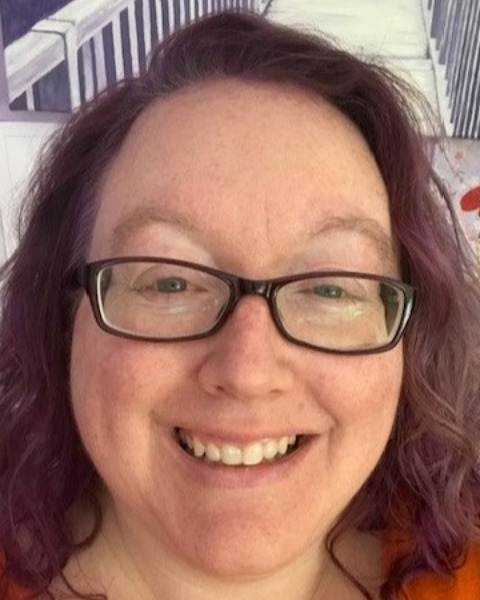Poster
Teaching of Evaluation
Teaching of Evaluation Poster Viewing
178 - Helping Emerging Evaluators Tell Their Story: The Importance of Self-Reflection
Wednesday, October 11, 2023
5:30 PM - 7:00 PM ET
Location: Griffin Hall

Jennifer Ann Morrow, PhD (she/her/hers)
Associate Professor
The University of Tennessee, Knoxville
Knoxville, Tennessee, United States
Presenter(s)
Abstract Information: Reflective practice is an important facet of learning. Reflecting on one’s evaluation experiences throughout the life of an evaluation project and beyond can aid emerging evaluators’ capacity to be competent evaluation professionals. Therefore, it is imperative to encourage evaluation graduate students to get in the habit of consistent self-reflection. How do we assist our emerging evaluators with telling their evaluation story? What are suggested strategies for encouraging consistent and meaningful self-reflection? In the presentation I will present what worked, how students responded to this assignment, and suggestions for faculty on how to incorporate reflective practice assignments in their courses. Suggestions for creative ways to self-reflect (e.g., videos, art) will be discussed as well as additional resources to use with your own students will be provided.
Relevance Statement: Reflective practice is an important facet of learning. Reflecting on one’s evaluation experiences throughout the life of an evaluation project and beyond can aid emerging evaluators’ capacity to be competent evaluation professionals. Therefore, it is imperative to encourage evaluation graduate students to get in the habit of consistent self-reflection. How do we assist our emerging evaluators with telling their evaluation story? What are suggested strategies for encouraging consistent and meaningful self-reflection? As an evaluation faculty member I have struggled in the past to get my students to jump on the reflection bandwagon. Many will wait until after an evaluation project is completed to reflect or not engage in the reflective process at all as they work on an evaluation. Therefore, I started requiring weekly reflections in my two-semester Introduction to Program Evaluation course. Students write (or create a video, arts-based reflection) each week in their journal and submit it to me each month for feedback. Using reflection journals can deepen the quality of learning as well as increase one’s active involvement in their own learning (Moon, 1999). Regular reflective practice can improve an evaluator’s professional practice (Smith, Barlow, Peters, & Skolits, 2015). However, emerging evaluators need to get used to engaging in regular and focused self-reflection. In my course students are asked to write weekly in a reflection journal which they submit monthly online. While I encourage my students to be creative in their reflections (i.e., they can write text, draw pictures, and record audio) I give them specific instructions to help guide them in their reflective practice. I give numerous suggested writing prompts to get them to think critically about their learning (e.g., “What have you progressed on/been successful with regarding your evaluation activities this week?”, “What evaluation/class related struggles have you experienced this week and “Thus far, what have been the most memorable moments as a novice evaluator?”). In the presentation I will discuss what worked, how students responded to this assignment, and suggestions for faculty on how to incorporate reflective practice assignments in their courses. Suggestions for creative ways to self-reflect will be discussed as well as additional resources to use with your own students will be provided.
Relevance Statement: Reflective practice is an important facet of learning. Reflecting on one’s evaluation experiences throughout the life of an evaluation project and beyond can aid emerging evaluators’ capacity to be competent evaluation professionals. Therefore, it is imperative to encourage evaluation graduate students to get in the habit of consistent self-reflection. How do we assist our emerging evaluators with telling their evaluation story? What are suggested strategies for encouraging consistent and meaningful self-reflection? As an evaluation faculty member I have struggled in the past to get my students to jump on the reflection bandwagon. Many will wait until after an evaluation project is completed to reflect or not engage in the reflective process at all as they work on an evaluation. Therefore, I started requiring weekly reflections in my two-semester Introduction to Program Evaluation course. Students write (or create a video, arts-based reflection) each week in their journal and submit it to me each month for feedback. Using reflection journals can deepen the quality of learning as well as increase one’s active involvement in their own learning (Moon, 1999). Regular reflective practice can improve an evaluator’s professional practice (Smith, Barlow, Peters, & Skolits, 2015). However, emerging evaluators need to get used to engaging in regular and focused self-reflection. In my course students are asked to write weekly in a reflection journal which they submit monthly online. While I encourage my students to be creative in their reflections (i.e., they can write text, draw pictures, and record audio) I give them specific instructions to help guide them in their reflective practice. I give numerous suggested writing prompts to get them to think critically about their learning (e.g., “What have you progressed on/been successful with regarding your evaluation activities this week?”, “What evaluation/class related struggles have you experienced this week and “Thus far, what have been the most memorable moments as a novice evaluator?”). In the presentation I will discuss what worked, how students responded to this assignment, and suggestions for faculty on how to incorporate reflective practice assignments in their courses. Suggestions for creative ways to self-reflect will be discussed as well as additional resources to use with your own students will be provided.
